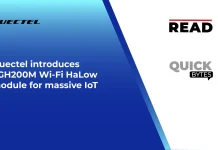Rivada Space Networks GmbH, a European network company launching a unique connectivity constellation for Government and Enterprise communications, announced that it has issued its request for proposals for 600 low earth orbit (LEO) satellites, having released the RFP for the associated heavy-lift launch services two weeks ago. The company anticipates selecting a prime contractor for the space segment, parts of the ground segment and system integration for the LEO constellation by the end of 2022 in parallel to the selection of the launch service provider.
For the first time, Rivada Space Networks will offer access to a secure satellite network with pole-to-pole reach, offering end-to-end latencies similar or better than terrestrial fiber. The Rivada network will operate like an optical backbone in space, using lasers to interconnect satellites and deliver an ultra-secure and highly reliable global data network for business operations in the telecom, enterprise, maritime, energy and government services markets.
Also Read: Doc Popcorn Releases New Sugar ‘N Spice Flavor Ahead of Holiday Season
Clemens Kaiser, Rivada Space Networks Chief Program Officer, said: “Following a rigorous process with a number of leading satellite manufacturers, we are delighted that today we have completed another major milestone in the specification and development of our unique constellation to enable secure, global connectivity for governments and enterprises. The key attributes of RSN’s laser-linked LEO constellation architecture include global reach, low latency, ultra-security, resilience and optional quantum key encryption.” He added: “We have worked tirelessly to ensure that our system comprises the best the satellite industry has to offer. We are really looking forward to moving to the next phase of our program to manufacture and deploy our LEO constellation.”
Severin Meister, Rivada Space Networks CEO, further added: “RSN is a German ‘NewSpace’ innovator and disruptor. I am incredibly proud of what our team has achieved in such a short time frame. Over the course of the past eight months we have completed the design of our satellite system and grown our teams in Munich and Berlin to further develop the technical, commercial and regulatory competencies of the company. With over 60 people today, we anticipate expanding further to over 100 people by the end of Q1 2023 and are on track to execute our vision of providing the first truly global point-to-point low latency connectivity network.” Meister added: “Initial customers are showing great interest, which confirms that we will occupy a much-needed niche. This is the German NewSpace company to watch!”






